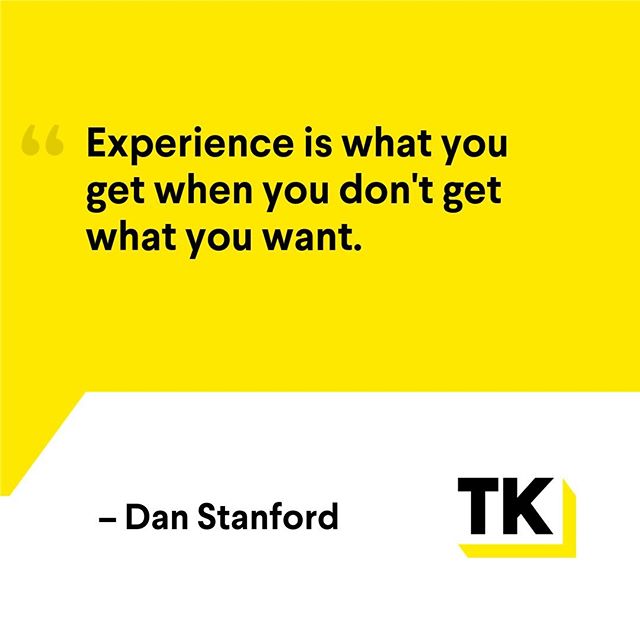When it comes to B2B SaaS companies, a well done Ideal Customer Profile helps catapult growth every single time.
Here’s one thing I’ve noticed: Everyone thinks they have a great ICP, but oftentimes what they really have is a customer wishlist.
Accurately defining your ideal customer profile is the most important step in developing a successful Go-To-Market strategy and a successful SaaS business. From product development to sales and marketing, your ICP is at the core of everything your SaaS business does.
In this article, I’ll walk you through everything you need to know about what an Ideal Customer Profile is, why it’s important to have one, and the most common mistakes you want to avoid as a SaaS Founder.
What is an Ideal Customer Profile?
An Ideal Customer Profile (ICP) is a comprehensive description of the perfect customer for your SaaS business. Your ICP tells you exactly who you need to target by identifying important characteristics that most of your buyers share. It includes information like company firmographics, size, revenue, industry, and location.
However, a well-done ICP goes beyond basic demographic information and includes a deep understanding of your customer’s needs, pain points, behaviors, and preferences.
For B2B SaaS businesses, an ideal customer profile is the type of business you aim to target that would benefit the most from your software solution. Businesses that fit your ICP are the most likely to buy and continue to use your product, making them extremely important to your business growth.
The ideal customer profile serves as the core of your Go-To-Market strategy. If done correctly, your ICP will help define the problem your SaaS solution solves. It will guide your marketing and sales efforts towards attracting, engaging, and retaining customers who are most likely to derive long-term value from your SaaS solution.
Why Do You Need an ICP?
Your ideal customer profile is at the center of every choice you make for your SaaS business.
Establishing a proper ICP is imperative for a successful SaaS business. Why?
The SaaS market is noisy and competitive. If you target the wrong market, your messaging becomes diluted and you waste resources. A proper ICP narrows down the most promising customer segment and ensures efficiency across all your business’ sales and marketing efforts.
Here are some top reasons why you should develop a proper ideal customer profile for your SaaS business:
1. Product Development
An ideal customer profile provides critical insights to the pain points, needs, and preferences of your customers. This information is invaluable for the development of your SaaS product. Understanding the unique pain points and needs of your ideal customers allows your SaaS business to prioritize feature development and enhancements that directly address these issues.
This is especially important for those following a Product-Led Growth strategy. When your product is self-service, it is crucial that your SaaS product is highly targeted and easy for customers within your ICP to use.
This customer-centric approach fosters product-market fit and enhances customer satisfaction and retention. When your SaaS product is targeted towards your customers and their pain points, it becomes more than just a software; it becomes a valuable tool that customers can’t imagine operating without.
2. Focused Marketing Efforts
A proper ideal customer profile enables your SaaS company to concentrate your marketing resources and efforts on the most promising customer segments. By defining specific characteristics and traits that align with your most ideal customers, you can create targeted campaigns, personalized messaging, and outreach strategies.
Your ICP also enables you to identify the most effective channels, ensuring that every campaign and initiative has maximum impact.
Great marketing in SaaS attracts your ideal customers and repels your non-ideal customers. When your marketing resonates with your ICP, you experience higher engagement, improved lead quality, higher conversion rates, and more efficient use of marketing resources.
3. Resource Optimization
Your ICP helps you understand who your customers are, and who your customers aren’t. This reduces wasted time and efforts on leads that don’t align with your ICP.
A well-defined ICP also helps you optimize your resource allocation. With a proper ICP, you can allocate sales and customer support teams to focus on customers most likely to benefit from your product. This targeted approach not only enhances customer satisfaction, but also maximizes the efficiency and effectiveness of your operations.
4. Referrals
When you focus your efforts onto your ideal customers, every part of your SaaS business falls into place. Because of this customer-focus business approach, your customers will be happier and more likely to refer to other ideal customers. Through referrals, you drive more organic growth and positively impact your company’s bottom line.
Overall, having an ideal customer profile serves as a strategic compass, guiding your SaaS business towards sustainable growth, profitability, and customer success.
Common ICP Mistakes
Many SaaS Founders inside my Go-To-Market Program joined because their ideal customer profile wasn’t yielding growth or results they were looking for. After being in the SaaS industry for 15+ years, I have notices that Founders make the same mistakes when building out their ICP.
1. Finding the Sweet Spot
SaaS businesses often face the delicate challenge of finding the sweet spot when building out their ideal customer profile.
On one hand, targeting too broad of a market can cause you to miss out on the potential of high-value niche customer segments. When you target the TAM (Total Addressable Market) instead of a proper ICP, it dilutes the effectiveness of your marketing efforts. Your messaging and campaigns may fail to resonate deeply with any particular segment of the market.
Trying to serve a broad range of customers can strain your resources, as it requires catering to diverse needs and preferences. This can lead to compromised product quality or stretches customer support, impacting customer satisfaction and retention. Overall, your SaaS business may find it challenging to establish a strong foothold and achieve sustainable growth amidst the clutter of a broad targeted market.
Conversely, narrowing the focus too much can result in excluding viable customer groups and limit growth opportunities. While niching down is advised and can offer certain advantages, niching down too much can present notable drawbacks.
One significant challenge is limited scalability. When you serve a small market, you may cap your growth potential and restrict avenues for expansion and revenue diversification. Over-reliance on a narrow customer base can also leave your business vulnerable to fluctuations or downturns within that specific market segment.
Finding the right delicate balance between specificity and scalability is crucial for sustained success in SaaS.
2. Not Data-Backed
Many SaaS Founders fail to back their ICP exercises with data and end up creating a wishlist of customers they would like to target. Neglecting data-driven insights can be massively detrimental to your growth strategy. By not leveraging data to identify customer behaviors, preferences, and pain points, you risk shooting in the dark.
This oversight can result in missed opportunities for market segmentation, personalization, and the inability to adapt to changing market dynamics. It can also result in misguided marketing strategies, inefficient resource allocation, and missed opportunities for customer acquisition and retention.
Failing to incorporate data-driven metrics into the ICP process can impede the ability to track and measure performance accurately. This hinders your ability to identify areas of improvement and optimization, slowing your scalability down.
3. ICP is Not Static
It is misconstrued that an ideal customer profile is a static element. In reality, it is a part of your continuous GTM cycle.
When building a scalable Go-To-Market strategy, there are three components:
- Your ICP
- Your Manifesto (Strategic Narrative)
- and Your Broadway Show (Consistent set of sales and marketing activities)
Most Founders move on and forget about their ICP after building it out. What they fail to realize is that you need to use the results of all other pieces of your GTM strategy to hone in on your ICP and iterate it further.
Your ideal customer profile should be updated constantly as your SaaS business grows. There needs to be iteration on all parts of your strategy and your ICP will require revamping at every stage.
4. ICP is Not Tied to Comp Plan
What most SaaS businesses don’t take advantage of is utilizing their ideal customer profile and implementing it into their Comp Plan.
What does this mean?
When your sales team goes after a non-ICP deal, their commission is lower. This is because non-ICP deals are less likely to close.
When the sales team is more incentivized to go after ICP deals over non-ICP deals, less time and resources are wasted.
In Conclusion
The benefits of building and utilizing an ideal customer profile for your SaaS business cannot be overstated.
An ICP is beyond merely refining your target audience. It truly serves as the compass, guiding your SaaS business towards smarter decisions, effective strategies, and sustainable growth.
If you’re a SaaS Founder struggling to build a proper Ideal Customer Profile for your business, grab a complimentary copy of my 5-Point SaaS Growth Strategy Guide.
Inside this guide, I help you define and establish a proper ICP. I also walk you through how to execute and align the strategy surrounding your ideal customer profile.












